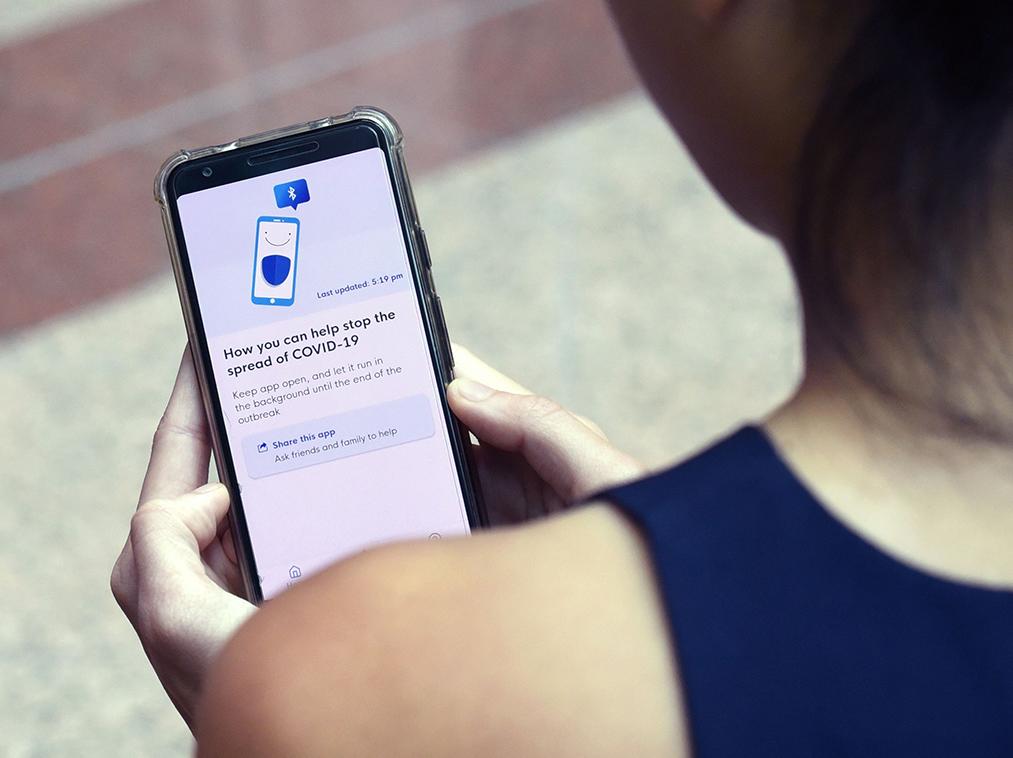Coronavirus: Singapore’s contact tracing device to have a battery that will last for nine months
The token is designed for elderly people, who may not have access to smartphones

Your support helps us to tell the story
From reproductive rights to climate change to Big Tech, The Independent is on the ground when the story is developing. Whether it's investigating the financials of Elon Musk's pro-Trump PAC or producing our latest documentary, 'The A Word', which shines a light on the American women fighting for reproductive rights, we know how important it is to parse out the facts from the messaging.
At such a critical moment in US history, we need reporters on the ground. Your donation allows us to keep sending journalists to speak to both sides of the story.
The Independent is trusted by Americans across the entire political spectrum. And unlike many other quality news outlets, we choose not to lock Americans out of our reporting and analysis with paywalls. We believe quality journalism should be available to everyone, paid for by those who can afford it.
Your support makes all the difference.Singapore’s contact tracing device will have a battery that will last for nine months.
The device, called TraceTogether Token, compliments the country’s TraceTogether application, which has already been downloaded by 35 per cent of Singapore’s population.
It is believed to be the first country to introduce a portable device alongside its tracing app, Bloomberg reports.
The token uses Bluetooth signals to record the presence of other contact-tracing devices, and are designed to assist the efforts of human contact-tracers.
If the device detects that a citizen is positive for COVID-19, it will need to be given to the Ministry of Health as it is unable to connect to the internet.
It will not track user location, and the data collected on each device will be deleted after a period of 25 days.
Vulnerable, elderly people who do not own smartphones will be prioritised when handing out the devices, the BBC reports, although using the device is voluntary.
However, it still remains a feat for Singapore to meet the target of 100 per cent of the population using the app.
It would require 75 to 80 per cent of the population to be signed up to a contact tracing measure to work effectively, hence the introduction of the separate tracer.
“What we want is to stitch those together and cover 100% of our population,” Minister-in-Charge of GovTech Singapore Janil Puthucheary said, according to Bloomberg.
“We are geographically small and we can deploy at a city level. So it’s conceptually possible to put this in the hands of every Singaporean.”
The minister also added that the design of the token could change as time goes on, although it is likely to be used throughout the end of the year.
It would be dependent on people’s behaviour, as well as how well the device is taken to by the populace.
Unlike the contact-tracing methods by Apple and Google, though, Singapore citizens have to hand over their national ID and phone numbers.
As such, privacy concerns have been raised.
“All that is stopping the Singapore government from becoming a surveillance state is the advent and mandating the compulsory usage of such a wearable device,” says a petition calling for the token to be discontinued, the BBC reports.
Apple and Google’s method does not reveal personal information to authorities.
Join our commenting forum
Join thought-provoking conversations, follow other Independent readers and see their replies
Comments